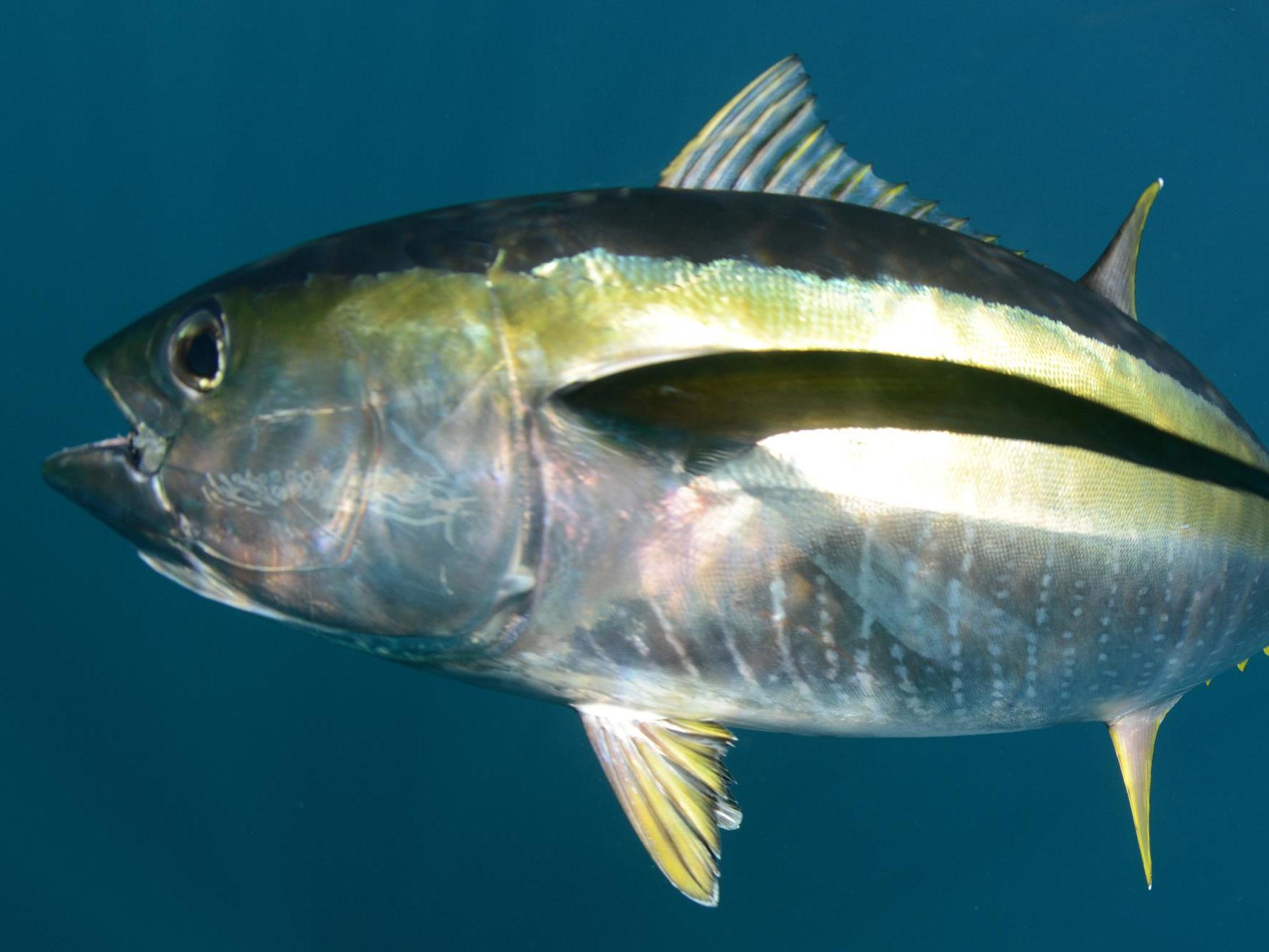Consumers urged to boycott yellowfin tuna from Indian Ocean over unsustainable fishing
Report warns customers do not know tuna stocks are at risk of collapse

Your support helps us to tell the story
From reproductive rights to climate change to Big Tech, The Independent is on the ground when the story is developing. Whether it's investigating the financials of Elon Musk's pro-Trump PAC or producing our latest documentary, 'The A Word', which shines a light on the American women fighting for reproductive rights, we know how important it is to parse out the facts from the messaging.
At such a critical moment in US history, we need reporters on the ground. Your donation allows us to keep sending journalists to speak to both sides of the story.
The Independent is trusted by Americans across the entire political spectrum. And unlike many other quality news outlets, we choose not to lock Americans out of our reporting and analysis with paywalls. We believe quality journalism should be available to everyone, paid for by those who can afford it.
Your support makes all the difference.Consumers should avoid yellowfin tuna caught in the Indian Ocean because the stock is being overfished and is at risk of collapse, campaigners say.
A report from Blue Marine Foundation said nearly 700 tonnes of mostly fresh or frozen yellowfin tuna is being sold in the UK each year, without customers being told that the fish is unsustainably caught.
While yellowfin stocks in the Western and Central Pacific are strong, tuna in the Indian Ocean is "overfished and at risk of collapse", according to the conservation charity.
Catches continue to rise despite a warning from the Indian Ocean Tuna Commission's (IOTC) scientists that they would have to be cut by 20 per cent to give the stock a 50-50 chance of recovering by 2024.
The Blue Marine Foundation also said a leaked letter showed the South African government had complained to the European Commission that Spain was catching far more than its quota of the fish, breaking EU rules.
Charles Clover, executive director of the foundation, said: "Consumers have been misled by misreporting, 'greenwash' and so-called improvement projects into believing that yellowfin tuna from the Indian Ocean is sustainably caught.
"This report shows that it is not. It has been disgracefully overfished for some time and we now hear that some of what has been on sale may have been illegally caught by EU fleets.
"It is time for consumers to vote with their feet and boycott this product until the European Commission does its job, cuts catches and penalises any countries who have been breaking the rules."
The report, published on World Oceans Day, said the fishery now needed a 25 per cent cut in catches to make it sustainable, but that was unlikely to be implemented at a meeting of the IOTC this week.
Professor Callum Roberts of the University of York added: "The Indian Ocean Tuna Commission has failed to deliver sustainable yellowfin tuna fisheries through a combination of greed and incompetence."
And he warned: "As bigger and more valuable bluefin and bigeye tunas have become overfished, yellowfin has become crucial to the industry's continued prosperity.
"That prosperity will be short-lived unless the Indian Ocean Tuna Commission does its job properly and puts stock protection ahead of short-term profit."
Reducing the amount of fish caught would also have a beneficial effect on sharks, turtles and seabirds which are caught in nets and lines as bycatch, the report said.
Press Association
Join our commenting forum
Join thought-provoking conversations, follow other Independent readers and see their replies
Comments